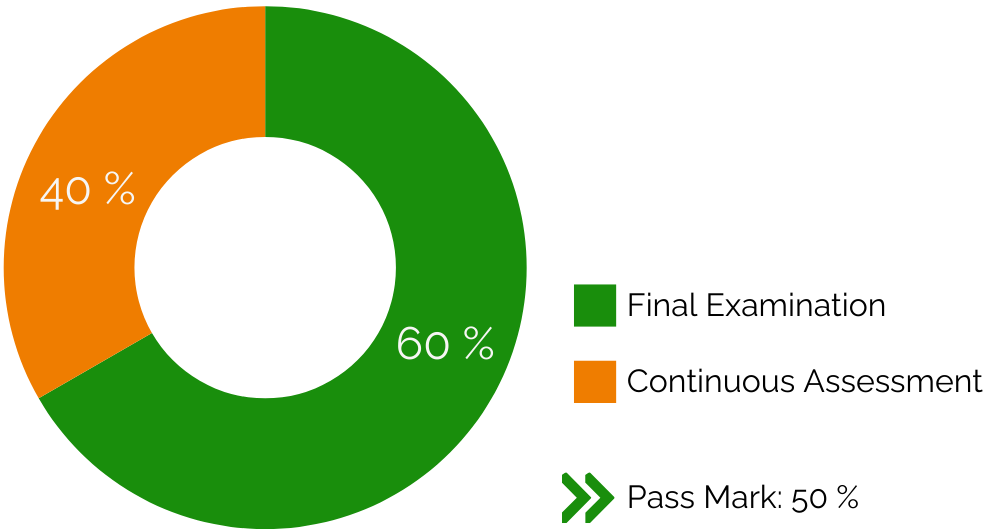
Mulungushi University
&
Chalimbana Local Government Training Institute

| HEA Reference No. | PGD |
| Name of Learning Programme | Postgraduate Diploma in Local Government Administration |
1. Rationale
Most Local Governments in developing (third world) economies, Zambia inclusive, experience serious challenges in the provision of quality public services to their community residents. As a result, most people in both the rural and urban settings of developing countries have found themselves receiving poor services from their respective local governments.
One of the major causes of poor service delivery in most developing economies including Zambia is lack of adequate human resource at to management level in councils with the required competencies to manage and facilitate quality service delivery to its local citizens.
It is against this background that this postgraduate programme has been developed. The programme will therefore, provide the nation with qualified human resource in local government administration who will apply the skills acquired through this programme and other related disciplines to meet the highlighted demands in the local government system.
2. Background Information of ILGAZ
The objective of the Institute of local Government Administrators of Zambia is to sponsor and maintain a system of training for Zambian Officers for all the top position in Local Authorities. The Institute which was formed in 1967, with the approval of then Minister of Local Government and Housing, Mr Sikota Wina MP, by the Town Clerks of Zambia and other senior top officials, aims to place greater emphasis on training of administrators rather than lawyers for the post of Town Clerk and Council Secretaries and other senior Officers. The Institute is the first real Zambia profession in terms of Local Government administration whose training and examination are directed towards Local Government Administration of Zambia.
The objects therefore, from which the institute was established were to carry out all or any of the following things for the purpose of attaining such objects:
1. Provide an organization for Town Clerk, Secretaries and other Administrative Officers in the Councils in Zambia and to establish means of testing the competence of such persons by examination and to encourage and hold examination in Local Government subjects akin thereto and issue award Diplomas and Certificates of proficiency in respect thereof.
2. Apply to the appropriate authorities under the protection of Names, Uniforms and badges Act, Cap 540 and under the corresponding legislation of any other designation used by the institute for its various classes of members and to confer on such members such right to use of names as it may think fit.
3. Hold Conferences and meetings for the discussion of all matters affecting councils and generally to collect, collate and publish information of service and interest to the institute and to members of the Institute and in particular, to confer and take proper action on all matters affecting the status, duties and responsibilities of its members.
4. Confer and take joint action with other Associations, Societies and bodies on matters affecting the promotion of the objects of the Institute.
5. Establish a means of testing the qualifications of candidates for admission to membership of the Institute by examination, enquiry or otherwise in theory or practice of Local Government and to grant certificates of proficiency, prizes medals and scholarships to successful candidates.
6. Afford Legislatures, Local Authorities, Public Bodies and the press information on Local Government Administration.
7. Establish and maintain a Bureau of information relating to Local Government Administration, to facilitate reference, investigation and research into all aspects of Local Government Administration, and further to hold meetings and conferences relating to the object and the affairs of the Institute.
8. Print and publish, sell, lend and distribute any report of the proceedings or transactions of the Institute or any similar Society and Bills, Circulars, Acts of Parliament or Official documents and to purchase, reproduce, print , publish and distribute, either independently or jointly with any other relating to the Law of Local Authorities, Local Government for cognate matters.
9. Take any gift of property, whether subject to trust or not, for any one or more of the objects of the Institute.
10. Undertake and execute any trusts which may seem to the Institute conducive to any of its objects.
11. Purchase, take on lease, or otherwise acquire, and also to dispose of any house or land of any tenure, or any real or personal property, right or easement, for the purposes of the Institute.
12. Maintain, repair, enlarge or otherwise alter or improve any buildings which the Institute may have and to build such buildings as may be required for the purpose of the Institute.
13. Borrow and raise money for the purpose of the Institute`s business and to secure for the payments thereof by bonds, debentures, mortgages or other securities, or in such other manner as may be determined, and for this purpose to mortgage or charge all or any of the properties of the Institute.
14. Invest any monies which are not required to meet current charges, fixed deposits in a bank or building Society, in the Post office Savings bank Union Loans Certificates, Government Securities or first mortgages on fixed property.
15. Apply, petition for or promote any Act of Parliament or other authority with a view to attainment of the above objects or any of them.
16. Do all such other lawful things as are incidental or conducive to the attainment of the above objects.
In recognition of the work of the Institute, The National Assembly passed the then Local Government ( Officers) Amendment Act on 19th March, 1970, whose main objective was to improve the law relating to the appointment of Town Clerk in Zambia because before that time, a town Clerk of a Local authority had to be a Lawyer. This was by virtue of the provisions of the Local Government (Officers Ordinance which provided that for one to be appointed Town Clerk he had to be a Lawyer. The Amendment Act of 1970 therefore, reviewed this restriction and as a result, fellowship or Associate Membership of the Institute was legally recognized as primary qualification for appointment to the position of Town clerk in Zambia.
When the Local Government service Act No. 33 of 1974 repealed the local Government ( Officers) Act, Cap .477, the new act gave powers to the Minister under Section 7 to make regulations for the better carrying out of the purposes of the act. The Minister did under this power issue statutory Instrument No.191 of 1975 and Regulations 5 of these regulations provided for the qualifications of a Principal Officer( Town Clerk or Secretary) as primarily that of fellow or Associate Member of the Institute of Local Government Administrators of Zambia.
Again in 1980, when the Local Government Act No.33 of 1974 was repealed by the Local Administration Act No. 15 of 1980, a saving was provided under section 92 (2) of the Act which extended the life and force of the Local Government service regulations of 1975 vis-à-vis the qualification of Fellowship or Associate membership of the Institute as a primary Qualification for persons aspiring for the appointment to the highest position in Local Government. The local Government Service Regulations 1996 under statutory Instrument No. 115 of 1996 which is currently under review restate the same position of the said qualifications.
3. Programme Purpose
The main purpose of this ILGAZ programme is to create a cadre of senior council employees who will have the necessary skills, knowledge and appropriate attitude to run the local government system effectively and efficiently
4. Programme Objectives
The programme is designed in such a way that upon completion the graduates should be able to:
1. Operate within the confines of the laws that govern the operations of local government system.
2. Provide services within the minimum acceptable standards to their local communities.
3. Manage efficiently and effectively organisational information systems.
4. Efficiently and effectively manage human resources.
5. Write and communicate efficiently within and outside an organisation.
6. Discharge and utilise limited public financial resources effectively and efficiently.
7. Adequately facilitate policy formulation process.
8. Effectively conduct research.
9. Apply the best practices of local government system.
10. Analyse corporate governance issues that organisations face.
11. Utilise available resources effectively and efficiently.
12. Facilitate sustainable local development at community level.
13. Relate theory to practice.
4. Duration

Eighteen (18) months designed on semester basis. The entire programme to be conducted in three (3) semesters
5. Course Outline
First Semester
| Course Code | Course Name | Hours |
|---|---|---|
| ILGAZ-01-A | Local Government Legal Framework | 90 |
| ILGAZ-02-A | Service Delivery Planning & Implementation | 120 |
| ILGAZ-03-A | Information Management System | 100 |
| ILGAZ-04-A | Human Resource Management | 110 |
| ILGAZ-05-A | Secretarial Practice | 100 |
Second Semester
| Course Code | Course Name | Hours |
|---|---|---|
| ILGAZ-06-B | Financial Management | 180 |
| ILGAZ-07-B | Public Policy Analysis | 90 |
| ILGAZ-08-B | Research Methods | 100 |
| ILGAZ-09-B | Comparative Local Government Administration | 90 |
Third Semester
| Course Code | Course Name | Hours |
|---|---|---|
| ILGAZ-10-C | Corporate Governance & Leadership | 90 |
| ILGAZ-10-C | Strategic Planning & Management | 130 |
| ILGAZ-10-C | Local Economic Development | 80 |
| ILGAZ-10-C | Research Project | 200 |
6. Teaching Strategies

Learning shall constitute lectures, projects, discussions, presentations, visual aids, field trips, assignments, case studies and practical training.
7. Entry Requirement

Option 1
First degree from a recognized university with at least one (1) year working experience in local government, OR

Option 2
Diploma from a recognized training institution with at least five (5) years working experience in local government

Exemptions
Exemptions will be considered on a case by case basis
8. Student Assessment
The break down for assessment is as follows:

9. Attendance
The candidate must have an attendance of minimum 85% to be eligible for the final examinations.
10. Progression Requirements
A candidate is expected to clear (pass) all the modules of each semester before they can proceed to the next semester.

Referrals
A fail in any of the modules at each semester shall lead to the candidate being referred and should clear the failed module(s) before proceeding to the next semester.
11. Certification

Post Graduate Diploma in ILGAZ t will be awarded by Chalimbana Local Government Training Institute in conjunction with Mulungushi University.